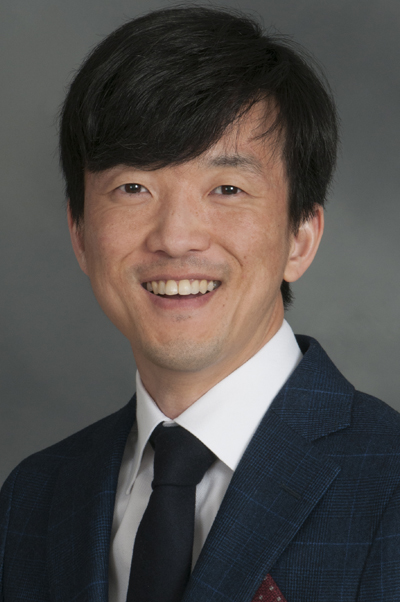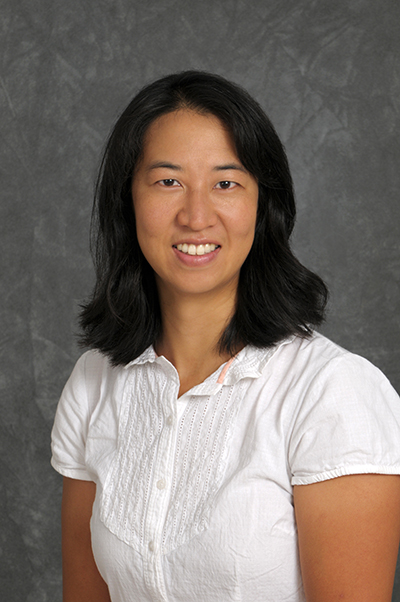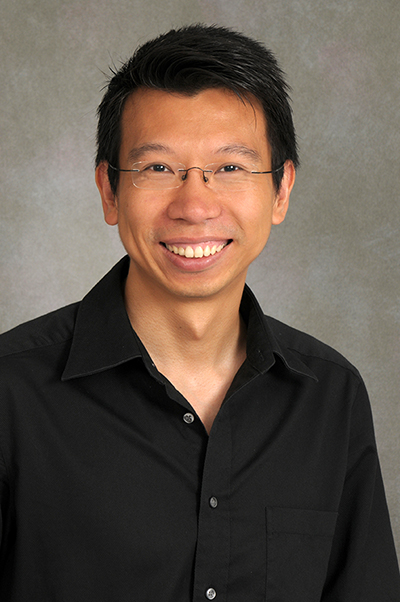Discovery Prize 2019 Winner
 |
Il Memming Park, PhDDepartment of Neurobiology and Behavior Il Memming Park aims to understand how information is represented and and computations are implemented in the brain in milliseconds to seconds time scale. He designs interpretable statistical models and machine learning methods specialized for neural time series. He earned his PhD in biomedical engineering from the University of Florida (2010), and trained with Jonathan Pillow at University of Texas at Austin as a postdoctoral fellow (2010-2014). He tightly collaborates with experimentalists who record from animal and human brains to uncover the hidden internal state dynamics underlying normal and abnormal cognition. |
Discovery Prize 2019 Finalists
 |
Melanie Chiu, PhDDepartment of Chemistry The Chiu research group studies how chemical reactions work in order to devise ways to make molecules and arrange them into larger constructs. Just as the design of a building ideally reflects its functions, the Chiu group studies how the architecture of molecules and molecular assemblies can be harnessed to achieve new or desired properties. For example, Melanie’s proposed project seeks to construct self-reproducing nanocapsules, which could lead to new generations of self-healing materials and have implications for studying the origins of life. Other work in the Chiu group utilizes light to control polymerization reactions, which can then be used to tailor the polymers’ material properties. Melanie is a native of San Diego, California, and graduated summa cum laude from Dartmouth College in 2004 with an A.B. in Chemistry. She earned her Ph.D. in 2009 as a National Science Foundation Pre-Doctoral Fellow in the Department of Chemistry at the University of California, Berkeley. She was a postdoctoral researcher at ETH Zürich (2009–2011, ETH Research Council Postdoctoral Fellowship) and Stanford University (2012–2014) before joining the faculty in the Department of Chemistry at Stony Brook University in 2014. Melanie especially values the privilege of pursuing some of science’s biggest mysteries as a member of the Stony Brook community because of its tremendous diversity, collaborative environment, and commitment to education as an engine of social mobility. When she’s not in the chemistry lab, Melanie enjoys training for triathlons, climbing, and playing violin.
|
|
 |
Sandeep Mallipattu, MDDCI-Martin Liebowitz Professor, Sandeep Mallipattu’s laboratory investigates the molecular mechanisms that mediate the development and progression of kidney disease. He will be working with a multidisciplinary team of researchers to pursue a combinatorial approach to building a whole kidney. The team will utilize novel stem cell technology in combination with biological and nonbiological scaffolds to promote whole kidney regeneration. Building an artificial kidney from patient-derived cells will have a profound impact in the medical field, as well as the addressing the rising burden of kidney disease, health care expenditures, and organ shortage in the United States. Dr. Mallipattu is the chief of Stony Brook Medicine Division of Nephrology and Hypertension
and a tenured associate professor in medicine, with a special interest in the area
of the molecular mechanisms, prevention and innovative treatment of kidney disease.Before joining Stony Brook University, he initially received training in biomedical
engineering from the University of California, San Diego with a subsequent medical
degree from Boston University School of Medicine and conducted Internal Medicine Residency
and Nephrology Fellowship training at Icahn School of Medicine at Mt. Sinai. |
|
 |
Ming-Yu Ngai, PhDDepartment of Chemistry Ming-Yu Ngai received his B.Sc. degree from the University of Hong Kong and a Ph.D. degree from the University of Texas at Austin. In 2009, he moved to Stanford University as the Croucher postdoctoral fellow and then to Harvard University as a postdoctoral associate. In 2013, he was appointed as an Assistant Professor in the Department of Chemistry at Stony Brook University. His research focuses on the development of novel and practical chemical processes to address unmet challenges in organic synthesis and to synthesize functional molecules that find applications in the fields of life sciences, materials, and energy research. Ming’s Discovery Prize proposal aims to develop resource-efficient, sustainable, and clean chemical reactions that harness renewable and free sunlight to convert a greenhouse gas, carbon dioxide (CO2), into valuable chemicals. An abundant, non-toxic, and inexpensive gas, CO2 is well-known for its association with anthropogenic climate change and can serve as a versatile and inexhaustible C1-building block to produce carbon-based fuels and value-added chemicals such as pharmaceuticals, agrochemicals, and functional materials. However, chemical functionalization of CO2 has been hampered by its high kinetic inertness and thermodynamic stability. To overcome this intrinsic energy barrier, his team will establish a dual catalyst system consisting of visible-light photoredox catalysts to capture, activate and photo-catalytically reduce molecular CO2, and harness the resulting •CO2‒ intermediate for further synthetic transformations. Accomplishment of his proposed research will: (i) revolutionize synthetic approaches to the preparation of high-value chemicals from the simple, non-toxic, and cheap feedstock, CO2; (ii) generate the versatile •CO2‒ moiety at ambient temperature and provide a new strategic chemical bond formation; (iii) make better use of both energy and carbon; (iv) store solar energy in the form of carbon-based fuels and chemicals; and (v) create new knowledge in CO2 capture, reduction, and utilization.
|
